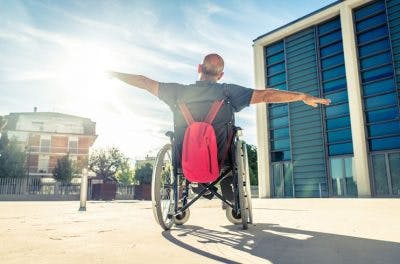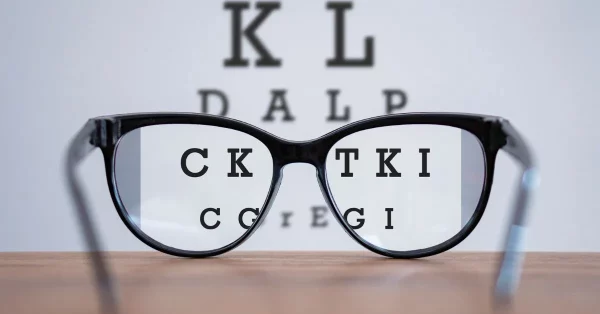Can TBI patients fully recover from their injury? There are many misconceptions that surround TBI recovery. Unfortunately, these can make people believe they will live with the effects of traumatic brain injury forever.
While this is sometimes true, the reality is many TBI patients can continue to make great strides in their recovery, even years after their injury. While it is not possible to predict any particular patient’s outcome, the chances of making a full recovery from TBI are much higher than most may think.
In this article, we will share some important facts about TBI rehabilitation plus tips on how to promote a more full recovery.
Is There a Time Limit for Making a Full TBI Recovery?
Before explaining how patients can maximize chances of fully recovering from TBI, we need to address a harmful myth about recovery: “the two-year myth.”
In the past, most rehab specialists believed that TBI recovery peaked around two years post-injury. Today, however, research demonstrates that this idea is false. In fact, TBI patients can recover their abilities long after the two-year mark. For example, a study that followed TBI patients for a decade found that even at the 10-year mark some patients were still improving their function.
As one TBI patient’s testimony explained:
“At 24 months after recovery, I was not yet reading or writing as I am today. I also still needed attendant care around the clock. Because of long-term follow-up, I can now drive and live on my own…I would never have been able to make progress if my rehabilitation had stopped at 24 months.”
Therefore, a full and functional TBI recovery is almost always possible, even though it might take several years of dedication.
But in order to make this type of progress, you must take initiative. In fact, without consistent work, brain injury recovery can stall and even regress.
Therefore, it is critical for TBI patients to be pro-active in their rehab. The more you work to promote a full recovery from TBI the more success you will enjoy.
In the sections below, we will cover a few concrete actions you can take to accomplish this.
How to Fully Recover from TBI

Many aspects of TBI recovery will depend on the severity of your injury. However, there are ways to encourage a more successful outcome no matter what level of disability you are currently at.
The following are a few tips to help you achieve your fullest recovery possible from a TBI:
1. Activate Neuroplasticity
By far the best way to ensure a full recovery from TBI is to engage neuroplasticity.
Neuroplasticity refers to the mechanism your brain uses to rewire nerve cells and form new neural pathways. This is the main reason TBI patients can recover their abilities after injury.
Research indicates that repetitive actions engage neuroplasticity and cause changes in the brain. Therefore, if you want to regain an ability, you must exercise regularly.
Want 25 pages of TBI recovery exercises in PDF form? Click here to download our free TBI Rehab Exercise ebook now (link opens a pop up for uninterrupted reading)
2. Practice Therapy at Home

Physical therapy is an effective way to activate neuroplasticity and regain abilities. It helps patients rebuild physical strength, coordination, and flexibility after TBI. Plus, it increases blood flow to the brain, giving it the nutrients it needs to function and heal. Additionally, if occupational therapy and speech therapy are prescribed for you, these can be crucial for your recovery as well.
Unfortunately, going to therapy appointments only once or twice a week will only serve as a foundation of guidance for your recovery. The brain requires thousands of repetitions to generate permanent changes. This is not possible to achieve if you only practice therapy in the clinic twice per week.
Therefore, to boost your recovery chances, you must practice at home every day the exercises you learn at the clinic.
To help you remember your exercises, your therapist can write you a home exercise sheet. There are also home therapy devices, such as FitMi, which walk you through exercises in a fun and engaging manner.
Practicing your exercises at home every day will keep your brain stimulated and further increase your chances of making a full recovery from TBI.
3. Take a Holistic Approach

Taking a holistic approach to brain injury rehab is also a great way to maximize recovery. This simply means making sure you treat every aspect of your brain injury.
For example, besides physical, occupational, and speech therapy, include psychological care and cognitive training exercises as well. These treatments can help you improve your memory skills. They can also teach you how to more effectively cope with the emotional side of your injury.
Finally, following a healthy brain injury diet can improve brain function and promote a fuller recovery from TBI.
4. Avoid Maladaptive Plasticity
While neuroplasticity can help you achieve a full recovery from TBI, it also comes with a downside. Therapists call this phenomenon maladaptive plasticity.
Maladaptive plasticity occurs when you consistently repeat an action the wrong way. For example, if you can’t move your right hand to pick up a cup, you might use your left hand instead.
However, if you continue to only use your left hand, eventually your brain will “forget” how to use your right hand. This leads to a condition known as learned non-use, and it can lead to permanent loss of function.
That’s why therapists recommend you incorporate restorative techniques into your recovery program. Restorative techniques teach you how to regain lost function, and not merely adapt.
Therefore, if your right hand is weak, try to resist the urge to do everything with your left hand. Instead, use your right hand as much as possible.
5. Push Through “Plateaus”

During the first six months after TBI, the brain enters a heightened state of plasticity. This means that therapy will have a more visible impact, and you can make rapid, sustained progress on your recovery.
However, after about six months, plasticity will decrease. As a result, you might feel like your recovery has stalled.
Therapists call these stalls plateaus, and they are a normal part of TBI recovery. But while your progress may have slowed, it has not ceased entirely.
In fact, you can still activate neuroplasticity, even during a plateau. The key is to persevere with your therapy exercises. With enough time and practice, you should begin to make progress again.
Can You Fully Recover From TBI?
In the end, by engaging neuroplasticity consistently, it is possible to make a full recovery from TBI. But, as with everything in life, there is no guarantee.
What we can guarantee, however, is that you will never progress if you never try. But by following the advice in this article, you can vastly improve your chances of making a fuller recovery from TBI.
Brain injury recovery is a tough process, and can often feel like an uphill battle. Hopefully this article has shown you the battle is worth it, and that recovery is always possible, even in severe cases.










